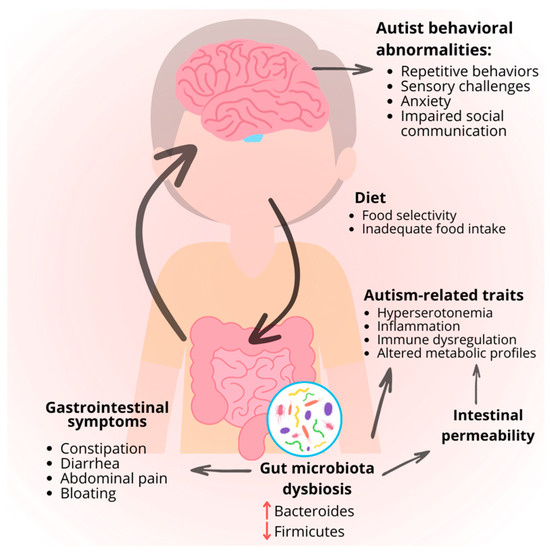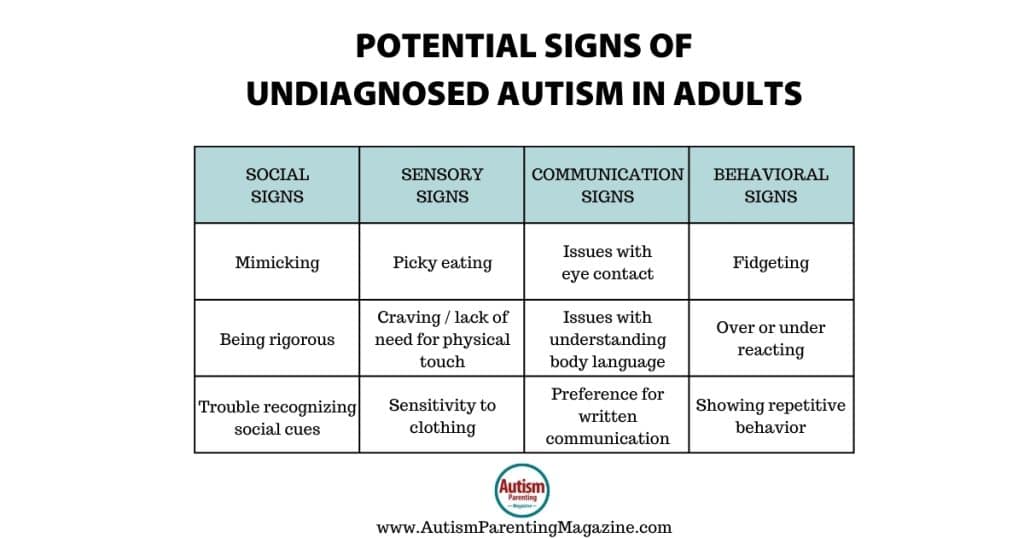The surprising strengths often seen by an Autism Therapist
The surprising strengths often seen by an Autism Therapist
Blog Article
Exploring Effective Strategies for Sustaining Individuals With Behavioral Autism
Supporting people with behavioral autism needs a nuanced understanding of their unique demands. You'll discover that tailored interventions, based in evidence-based techniques, can make a significant difference. By working together with families and experts, you can develop a tailored strategy that promotes interaction and growth. However what details strategies can you execute to ensure these people flourish? Allow's explore the reliable approaches that can boost their day-to-day experiences.
Recognizing Behavioral Autism: Trick Characteristics and Obstacles
When you start to recognize behavior autism, you'll see a number of essential qualities and challenges that specify the experience for individuals. Social interactions could be testing; people may discover it difficult to review social hints, leading to misunderstandings in relationships.
In addition, sensory sensitivities prevail, creating pain in atmospheres with intense lights or loud noises. These difficulties can bring about anxiety or aggravation, impacting day-to-day live. It is necessary to recognize that each individual is one-of-a-kind, and their experiences may differ. Comprehending these characteristics permits you to approach assistance with compassion, promoting a positive link that can improve their health and motivate development.
The Significance of Personalized Interventions
When it concerns supporting individuals with behavior autism, personalized interventions are important. By creating customized treatment strategies that concentrate on private staminas, you can considerably boost their growth. Collaborating with support groups ensures every person is aligned in offering the very best care possible.
Customized Intervention Strategies
Developing customized treatment strategies is vital for efficiently supporting people with behavioral autism, as each individual's toughness, challenges, and requirements vary considerably. Start by collecting comprehensive information regarding the individual, including their choices, triggers, and past experiences. This flexibility not only cultivates engagement however also advertises a feeling of possession and empowerment for the individual.
Individual Toughness Analysis
A private strengths assessment is necessary for developing personalized treatments for individuals with behavior autism. By concentrating on everyone's distinct abilities, you can develop strategies that resonate with their skills and interests. This strategy not just enhances involvement but additionally enhances self-confidence.
When you recognize staminas, like phenomenal memory or imaginative skill, you can customize treatments that leverage these areas. This not only makes finding out more effective yet also fosters a sense of accomplishment. Bear in mind, every person has distinct capacities; identifying them equips you to craft significant experiences.
Including these strengths into day-to-day routines and healing techniques can result in boosted end results. Eventually, focusing on toughness assurances that treatments are not simply efficient but likewise improving for the individual.
Collaborative Support Teams
Acknowledging specific strengths establishes the phase for creating collaborative support teams that concentrate on tailored interventions. By combining experts, member of the family, and the people themselves, you produce a supportive network that tailors approaches to meet specific requirements. Each team participant adds special insights, making certain a comprehensive technique that deals with behavior challenges effectively.
This versatility is essential, as it helps every person involved remain aligned with the person's preferences and goals. Furthermore, engaging in this team-based approach encourages people with autism, advertising their self-advocacy and confidence.
Evidence-Based Communication Techniques

When collaborating with individuals on the autism range, utilizing evidence-based communication techniques can greatly improve their capability to link and express themselves. Using aesthetic assistances, like photo timetables or communication boards, assists clarify expectations and cultivates freedom. Simplifying language and using concrete terms allows for far better understanding, decreasing aggravation.
Incorporating social stories can prepare people for various circumstances, teaching them appropriate responses and behaviors. Encouraging using assistive innovation, such as speech-generating tools, empowers people to interact better. Furthermore, employing regular regimens and foreseeable atmospheres can provide a complacency, making communication more efficient.
Keep in mind to be client and provide time to refine your words. Taking part in active listening, where you mirror their ideas and sensations, can strengthen your link. By executing these techniques, you'll create an extra encouraging interaction ambience for people with autism.
Developing Supportive Atmospheres
Creating encouraging atmospheres for people with behavioral autism begins with applying organized regimens that give predictability and safety. You'll additionally intend to create sensory-friendly spaces that deal with specific requirements, minimizing overwhelming stimulations. Furthermore, utilizing positive reinforcement strategies can encourage wanted actions and cultivate a sense of achievement.
Structured Regular Application
Establishing a structured routine can substantially improve the setting for individuals with behavior autism. By creating a constant routine, you provide predictability, which can reduce anxiousness and complication. Beginning by breaking the day into workable sections, incorporating tasks like dishes, playtime, and peaceful time. Use visual routines or timers to aid them comprehend what comes next. Make sure to consist of chances for breaks, as these can help them regroup and redouble. It's essential to be versatile; while routines are advantageous, adapting to changes in mood or conditions is crucial. Motivate engagement in establishing the routine, so they really feel a sense of ownership and control. A well-structured setting fosters self-reliance and self-confidence, sustaining their overall advancement.
Sensory-Friendly Spaces Design

Positive Support Strategies
When you integrate positive reinforcement techniques into your method, you can significantly improve the learning and behavioral results for people with autism. Start by determining what encourages the private-- be it applaud, symbols, or unique tasks. You can also slowly increase the intricacy of jobs as individuals end up being extra comfortable, strengthening their development.
Collaborative Approaches: Collaborating With Experts and households

Entailing relative in decision-making empowers them and boosts their capacity to sustain their enjoyed ones. Specialists, consisting of specialists and educators, can give beneficial resources and training that even more her explanation aid households.
You should likewise appreciate each event's perspective, identifying that households understand their kid best while specialists bring specialized understanding. By crafting you can look here individualized plans together, you produce a customized method that attends to one-of-a-kind needs. Aba Therapist. Ultimately, this partnership not just benefits the specific with autism however likewise reinforces the support network bordering them, making it a lot more efficient and natural
Integrating Social Abilities Training
Structure on the solid partnerships formed between specialists and households, including social abilities training can significantly enhance the support supplied to individuals with behavior autism. This training assists you instruct important interaction abilities, such as starting conversations, understanding non-verbal hints, and reacting suitably in social scenarios.
By making use of structured tasks, role-playing, and real-life situations, you develop possibilities for technique in a secure atmosphere. Encourage people to participate in group setups where they can engage with peers, promoting friendships and enhancing their comfort in social contexts.
It is very important to tailor the training to every person's special strengths and obstacles, ensuring they feel positive and qualified. Consistently including feedback from both families discover this and experts can refine these methods, making social skills educating more reliable. Eventually, you're equipping people with the devices they need to browse social communications efficiently and build meaningful partnerships.
Keeping Track Of Progression and Adjusting Methods
As you carry out social skills training, it's critical to keep an eye on development and readjust techniques appropriately. Keep track of habits, keeping in mind obstacles and renovations. Use tools like graphes or lists to visualize development and recognize patterns. Regularly assess your monitorings to analyze what's functioning and what isn't.
Involve the person in reflection, asking just how they really feel concerning their progress and what difficulties they face. This feedback is important for customizing your method. Do not wait to customize them. if certain strategies aren't producing outcomes.
Integrate a selection of strategies to maintain the training vibrant and appealing. Work together with other caretakers or professionals for fresh viewpoints and understandings. Keep in mind, adaptability is essential; what works today could not work tomorrow. By staying mindful and responsive, you develop an environment that fosters development and growth. Always celebrate accomplishments, regardless of exactly how little, to urge ongoing effort and interest.
Often Asked Concerns
What Are the Usual Misconceptions About Behavioral Autism?
You may assume behavior autism only influences interaction, however it includes far more. Numerous believe all people with autism act the exact same, overlooking their one-of-a-kind traits and abilities. It's necessary to comprehend everyone's differences.
How Can Innovation Assist in Sustaining People With Behavior Autism?
Modern technology can boost communication, giving tools like applications for social abilities and habits tracking. You can utilize virtual truth for immersive experiences, and wearable tools can monitor emotions, helping you sustain individuals properly.
What Duty Do Sensory Handling Issues Play in Behavioral Autism?
Sensory handling issues can greatly influence habits. You may observe that frustrating sensory input causes anxiety or disasters. Recognizing these difficulties assists you create an extra supportive setting for individuals experiencing sensory overload.
Are There Specific Dietary Recommendations for People With Behavioral Autism?
Yes, particular dietary suggestions can aid. You may think about a gluten-free or casein-free diet, which some find helpful (Autism Spectrum Therapies). Constantly get in touch with a healthcare professional before making substantial changes to guarantee it's appropriate for you or your enjoyed ones
How Can Peers Be Educated to Support Individuals With Behavioral Autism?
To educate peers, you can arrange workshops, develop informative materials, and urge seminars. Involving activities, like role-playing scenarios, help them comprehend challenges faced by individuals, fostering compassion and effective assistance within the community.
Exploring Effective Approaches for Supporting People With Behavioral Autism.
Creating customized treatment strategies is necessary for successfully sustaining people with behavioral autism, as each person's toughness, obstacles, and demands differ substantially.A specific toughness analysis is vital for establishing personalized interventions for individuals with behavior autism.To support individuals with behavior autism, creating sensory-friendly rooms is vital, as it can considerably improve their convenience and focus.Collective techniques are vital for supporting individuals with behavioral autism, as they cultivate a solid partnership between households and specialists.
Report this page